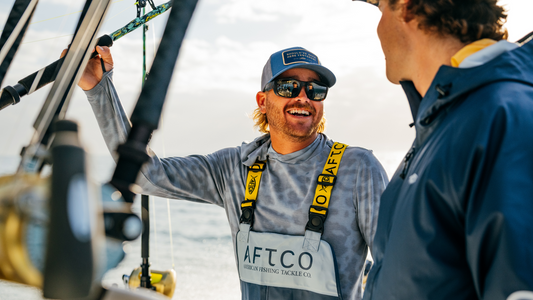
TAG/FLAG TOURNAMENT

This article originally appeared in the Marlin Magazine July 2007 issue. Words by Charlie Levine.
In the 1980s, anglers fishing the offshore canyons along the Northeast and mid-Atlantic coasts enjoyed an amazing tuna bite. As word spread and more crews perfected their techniques, the catch ratio surged. On any given day, you would see huge packs of boats working these deepwater ledges, and few of them went home empty-handed. The tuna caught were often sold at the dock, boxed up and shipped off to Japan. Conservation, let alone tagging, wasn't the preeminent thought in most captains' minds.
One such tuna trip off of New Jersey with Capt. Pete Barrett and AFTCO's Bill Shedd and Greg Stotesbury became the impetus for a new era in conservation.
"That trip always stuck in my mind," says Barrett, a charter captain for 30 years and the former editor of the New Jersey edition of The Fisherman magazine. "We went on an overnight trip starting at Hudson Canyon. We caught bigeye, yellowfin and albacore tuna. On our way in, we stopped at an area known as the Slough and caught some bluefin and small yellowfin as well. On that one trip, we were able to catch all four of the major tuna species in the Atlantic. We tagged 27 tuna and took home fish. I think it really got Bill thinking."
Shedd saw the value of these tuna, not in terms of the price per pound, but as a resource. "We could count hundreds of sport-fishing boats with the naked eye and knew many hundreds more were out of sight," Shedd says. "Very little tagging data was available for Atlantic tuna at that time, as only a handful of fish were tagged each year. It seemed obvious that at some point in the future, there would be management issues with this valuable resource. If we waited until that problem existed to gather tagging and other important data, it would be too late. By the end of the trip, I was set on developing a program to help increase tag and release."

In 1990, AFTCO created the yearlong Tag/Flag Tournament for both captains and anglers in the Atlantic. It quickly became the most recognized and prestigious tagging awards program, significantly impacting the number of game fish being tagged in the northeast.
READ MORE





